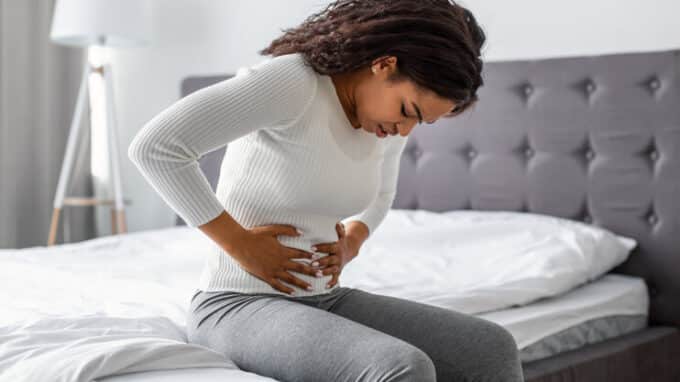For many women, the days before menstruation are characterized by physical and mental complaints such as abdominal pain, nausea, mood swings and anxiety. Almost half of all women of childbearing age suffer from premenstrual syndrome (PMS), which affects their daily well-being and performance. Women with PMS also suffer more frequently from depression, eating disorders and migraines, and have a higher risk of suicide.
Doctors prescribe various medications and dietary supplements to alleviate the symptoms, ranging from natural remedies and magnesium to antidepressants and hormone treatments. However, these treatments do not always help, and some of them have side effects such as drowsiness, nausea, weight gain or depression, while hormone treatments often have a negative impact on patients who want to have children. It is therefore important for each individual to weigh up which PMS treatment method is best for them.
“Nothing” Can Help
This premise was the starting point for a study by the Faculty of Psychology at the University of Basel. The research team, led by Dr. Cosima Locher, Prof. Jens Gaab and Dr. Antje Frey Nascimento, in collaboration with researchers from Harvard Medical School, investigated whether open-label placebos can help those affected. The results of the study were published in the journal BMJ Evidence-Based Medicine.
“Placebos are well researched because they are used in all drug trials. And they have no side effects,” says Jens Gaab, highlighting some of the benefits. At the same time, the placebo effect should not be underestimated. ”Our brain has learned that something works when we take it regularly – even if it contains no active ingredients.” Studies show that placebos can alleviate both physical and mental ailments, even when administered as open-label placebos, i.e. when patients know they are taking a tablet with no active ingredients. This has been demonstrated by randomized controlled trials relating to, for example, irritable bowel syndrome, chronic pain disorders and menopausal hot flushes.
To find out whether open-label placebos (OLPs) could also help with PMS, the researchers conducted a study with 150 subjects aged between 18 and 45 who were moderately to severely affected by PMS. Women who were not taking psychiatric medication participated in this study. They were randomly assigned to three equal study groups. The participants in the first group continued their previous treatments. The participants in the other two groups received an open-label placebo treatment and could decide for themselves whether they wanted to continue their previous treatments or not. One of the two placebo groups was given the placebo pills without additional information, while the other placebo group was informed about the reasons for the placebo treatment during a 20-minute conversation with the researchers. The placebo pills were to be taken twice a day for six weeks.
Treatment Without Side Effects
The open-label placebos alleviated the symptoms of the participants both with and without additional explanatory information, but the effect was greatest in women who received the information in addition to the placebo. In these women, the intensity of the symptoms was reduced by almost 80 percent. “We did not expect the effects to be so pronounced,” says study director Dr. Antje Frey Nascimento. The severity of the symptoms also decreased in the other two study groups, but to a lesser extent in the women who simply continued taking their previous medication.
The provision of treatment information thus made a significant difference. The principal investigator explains this, among other things, by the fact that the women felt more taken seriously as a result of the treatment discussion. The element of interpersonal communication between the treating physician and the patient therefore seems to play an important role. This is associated with a sense of self-efficacy: my body is able to help itself. The study director believes that this interaction between body and mind is an important element in OLP treatment.
All these factors make placebos a safe, effective and acceptable intervention for PMS, especially when combined with the provision of appropriate information. The only catch is that placebos have so far only been used in research. And while we now have initial evidence of their effectiveness, we still lack important empirical evaluations regarding their use in clinical practice, as well as a clear legal basis. Nevertheless, research with open-label placebos is increasing, and researchers in Basel are keen to explore further potential areas of application.





